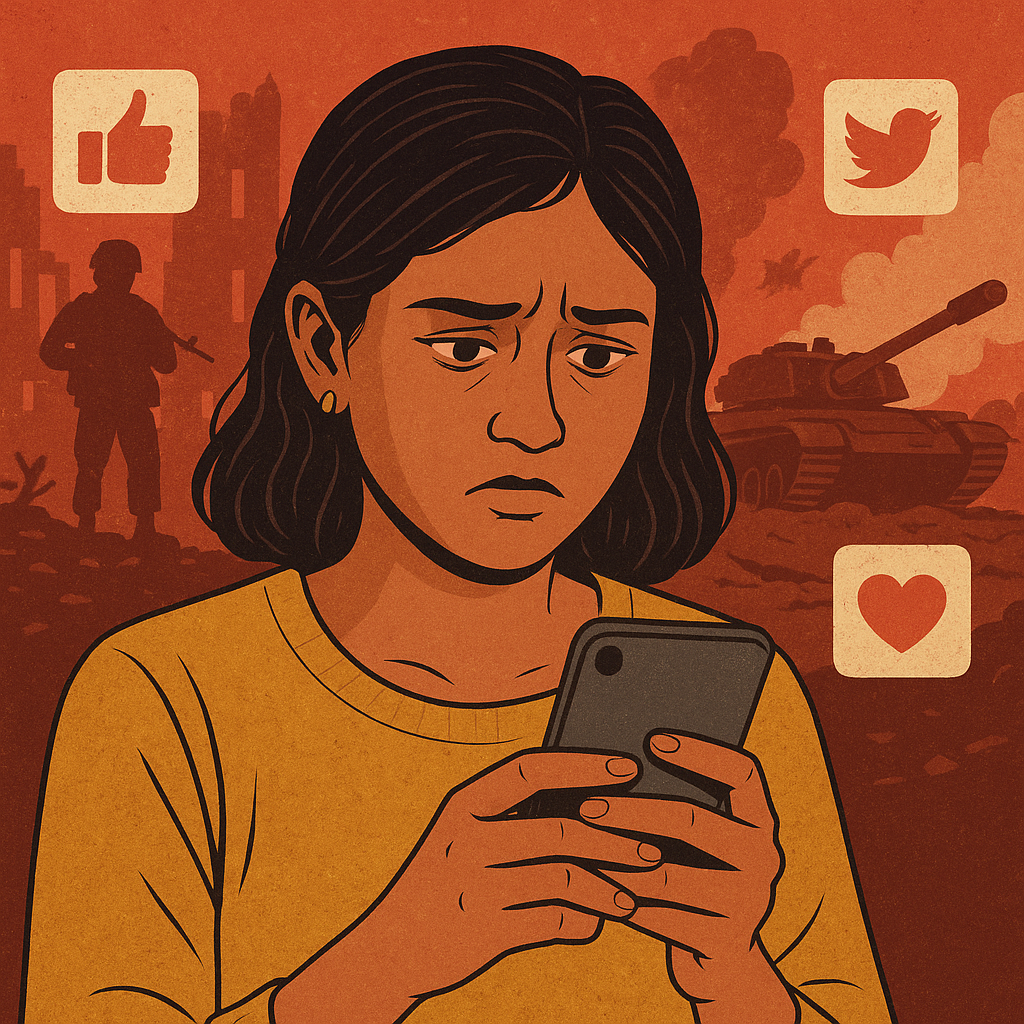In recent weeks, amid rising diplomatic and military tensions between India and Pakistan, another crisis has quietly intensified — not along the border, but in the minds of everyday citizens. As speculation of war trends across social media, mental health professionals are reporting a sharp uptick in anxiety and stress disorders, especially among youth and parents of young children.
The overwhelming influx of real-time news, misinformation, and graphic content has triggered a wave of panic, forcing health experts to confront what they call a “parallel epidemic” — digital war anxiety.
“Our clinics are seeing a visible surge in patients who are not directly affected by the conflict, but are overwhelmed by what they are seeing online,” says Dr. Varsha Bhargava, a clinical psychologist based in Gurugram. “The constant barrage of news alerts, videos, and unverified posts is harming the psychological resilience of even the otherwise well-adjusted.”
Doomscrolling the Battlefield
While traditional conflict may be fought with arms and ammunition, today’s psychological warfare is largely waged on screens. Platforms like X (formerly Twitter), Instagram, and WhatsApp have become conduits for panic, conspiracy theories, and morphed videos that blur the line between fact and fear.
Experts refer to this compulsive overconsumption of distressing news as doomscrolling — a habit exacerbated during national or global crises.
“Social media amplifies threat perception,” says media psychologist Ranjana Deshmukh. “When you’re exposed to war-like images in quick succession, your brain begins to perceive imminent personal danger, even if you’re physically distant from the source of conflict.”
The World Health Organization estimates that over 11% of adolescents globally exhibit problematic social media use — a statistic that becomes more alarming in conflict scenarios.
Tips from Mental Health Professionals
With misinformation spreading faster than facts, psychologists are urging citizens to adopt digital hygiene practices that can mitigate anxiety and emotional fatigue.
1. Limit Exposure:
Avoid constant checking of news apps or social media feeds. Set a specific time for updates and avoid screens before bedtime.
2. Verify Before You Share:
Only follow verified news outlets and cross-check facts before forwarding information, especially in family groups.
3. Practice Mindfulness:
Deep breathing, guided meditation, and journaling can help regulate emotions.
4. Talk It Out:
Seek professional counseling or peer support groups if anxiety becomes overwhelming.
A Word of Caution for Parents
For children, whose psychological defenses are still forming, the exposure to distressing war-related content can be particularly harmful. According to Dr. Kaveri Subbiah, a developmental pediatrician, parents should initiate age-appropriate conversations, acknowledge their child’s feelings, and offer reassurance.
“Children don’t need every detail. What they need is a sense of safety and control. That starts with the parents,” she explains.
Tips for caregivers include:
- Discuss the situation honestly but gently.
- Avoid TV news or violent social media content in shared spaces.
- Redirect anxiety into art, play, or storytelling.
- Offer emotional vocabulary: sad, scared, confused — to help children express themselves.
Towards Emotional Resilience
This moment in history, mental health experts say, is not just a test of military strength but also of emotional endurance. Building emotional resilience through structured routines, positive conversations, and conscious digital boundaries can equip individuals to navigate not just the current uncertainty, but future ones as well.
“Let us not allow fear to become the dominant voice in our minds,” says Dr. Bhargava. “We must learn to filter both our media and our thoughts.”


